An interfaith marriage is still met with a lot of resistance in Indian society. Obviously, the biggest reason why arranged marriages are successful in India is religious and caste compatibility. The families meet only when the bride and the groom are of the same religion and caste. There are certain boxes that have to be ticked before two families even consider taking an alliance forward.
The absence of such compatibility is a dealbreaker in most homes – just like mine. Seriously! It took me my marriage to someone I love to realize this harsh truth. And why, you ask? That is because the man I married is someone from a different caste and religion.
What started as gentle banter and mild disagreements between elders on both sides of the family, quickly precipitated into a full-fledged cold war and bitterness, leading to a lot of interfaith marriage problems. On Parents’ Day 2021, I will tell you how we taught our parents a lesson in love, thanks to our interfaith marriage.
Solving Problems Of Interfaith Marriages
Table of Contents
Never did I expect the playful rivalry that I witnessed during the course of our interfaith wedding to snowball into a major crisis today. I am furious to even think of how despite knowing that they will never be able to make peace with each other’s ways, they had originally agreed to let us marry.
Below the cool, polished exterior of today’s pro-liberal parents lie layers of ugliness and years of social conditioning wrapped tight around their very bones. When we got married, the Christian family shunned the mangalsutra, but the Hindu one was hell-bent on me having one around my neck.
Even so, wouldn’t it have been wiser had they distanced themselves from influencing how ‘our’ family should function within the walls of our home? And this was just the beginning of it. The problems of interfaith marriages are plenty, as we’d learn in due course.
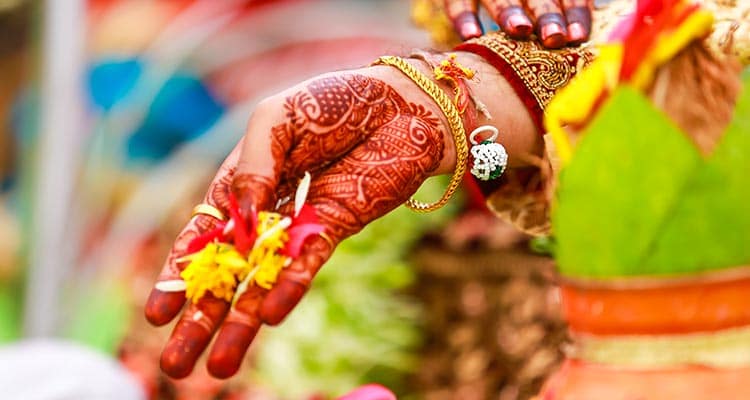
The best way to win arguments is to avoid it
Let me not tell you whether I am a Christian or a Hindu, for it doesn’t matter. Not at least to us. Since I turned eighteen, I have been largely agnostic and borderline atheist. Religion stopped playing any role in my life.
While I loved what Richard Dawkins wrote about, I rather chose to obey the words of Dale Carnegie. He was the one who taught me that ‘the best way to win an argument is to avoid it’! Needless to say, as most well-read young girls of today, I am discovering feminism and it is just the start. We still have a long, really long way to go as a nation and as humans in general. I am enraged at all that happens around me, on an everyday basis.
Having known and understanding better now about how traditions and customs in weddings are utterly patriarchal, the feminist argument is stronger in my mind to shun the mangalsutra, though I would have gladly accepted the religious frivolity part of it to placate the families who were in their own way struggling to come to terms with the idea of the marriage of interfaith couples.
I wanted to maintain peace
Even though a fire rages in my mind about everything that is going on, the age-old customs we were made to go through, how unequal the entire process of a marriage of an interfaith couple is, I somehow manage to put up a ‘tolerant, cool exterior and, accept the ways of my tribe, whichever side of the marital fence that I’m on – for want of propriety.
Did I call it a marital fence? It sometimes feels like our two families are like warring countries separated by miles of barbed and electrified fences. That’s how I felt, and it was suffocating to no end.
Come festivals, things only get more complicated. And I was naive, for the lack of a better word, to even think that festivals will always continue to be fun. As an interfaith couple, things will never be easy for us.

There are clear instructions from both sides of the family on ‘how’ to celebrate it. For the Hindu days of fasting, I was forced to go hungry, rather, go hungry to work, and for the Christian month of Lent, I was asked to fast too. They wanted to see which side we swayed towards.
Deep inside, it was vexing me. With social awareness comes anger and intolerance to the circus of religion that was happening around me. It was straining my relationship with my husband – who continued to remain unhinged and smiled and passed it all off as harmless, ‘cute’ interference.
He even got defensive about his family when it came to their religious push and shove behavior that never ceased to stop, and was only increasing in a bid to keep up with my family’s dose of craziness.
We withstood it all, and thus, 2 years of our interfaith marriage zipped passed by, just like that. Even though it was affecting our marriage, in ways more than one, we continued to go strong and be as much in love as always.
Related Reading: 12 Ways to Deal With a Jealous Mother-In-Law
The arguments became longer
During the third year of our marriage, my husband and I started having longer and longer arguments. We started having countless near-fist fights over religious topics. To my horror, I also discovered that he had been moving inch-by-inch over to his conservative family’s side. What a dark shift from his iconoclastic, free-spirited persona.
This change in my husband, in turn, annoyed my parents, who wanted me to ‘double it up’. So, by the third year, my marriage was reduced to a competition, thanks to both our families, and it became a game, where I had no idea who was in charge of tallying the scoreboard.
What we finally did
On the occasion of Parents Day 2021, we decided that enough was enough. After a really big fight that involved shouts, door bangs, and tear streams, some strange passion brought us together. We felt closer for a moment. That was when we decided to switch off our mobile phones and take a real break.
And I cannot begin to go about how much-needed that break was.
After messaging both parents that we were on a break (from them, of course!), we drove up to a nearby hill station. We shared the driving duties, played the songs from our college days, and even sang the lines together. After checking into a nice resort, we slept for ten long hours. When we woke up in each others’ arms, we felt much calmer, and better.
Related Reading: 12 tips to successfully save a broken marriage
We finally found peace
What we did next was something that needed to be done long back. But better late than never, right?
We dropped e-mails to our offices, asking for leaves, stayed in for three more days and began having ‘normal’ cell phone-free conversations, like it was in the 1990s. It is funny how much we lose due to our excessively digital lives. We tend to forget to appreciate and live through the simple and basic joys of life.
No more WhatsApp forwards from our ‘family’ groups or private messages from parents to bring the spouse to ‘our’ faith. We went out and about and spent time with nature! We went hiking, visited a temple and a church on the same day, and surprisingly, we found no difference. We set out to have a good time and we did.
For two long evenings, we walked around the lake holding hands, and we wrote to each other real love letters. It was truly our blissful weekend! When we drove back, we decided to bring both families together for a talk. That was the only way to again be us, the way we were when we first fell in love.
It may even be funny to you, but we have even formatted a ten-point playbook of religious tolerance both families should adhere to! Seriously! Our minds are now together, and crystal clear. And, we can’t wait to look forward to the next beautiful chapter that began on the trip!
FAQs
The only way to go about marriage is going through it. Divorce is mostly always a personal choice when two adults decide to part ways. If there is enough love and an adult mutual understanding and acceptance in an interfaith marriage, we don’t see why there has to be a divorce.
There is no right or wrong formula to going about an interfaith wedding. Since this is quite a complex process and there can be a clash of interests, the best way to have an interfaith wedding is for the two families to communicate every single aspect of it and come to decisions upon mutual agreement.
As we said, interfaith marriage problems will arise only when you will let them. If you are spiritual, come to a mutual decision about how to go ahead with each other’s spiritual preferences. There is no better way to move ahead than communication and clarity.
Your contribution does not constitute a charitable donation. It will allow Bonobology to continue bringing you new and up-to-date information in our pursuit of helping anyone in the world to learn how to do anything.






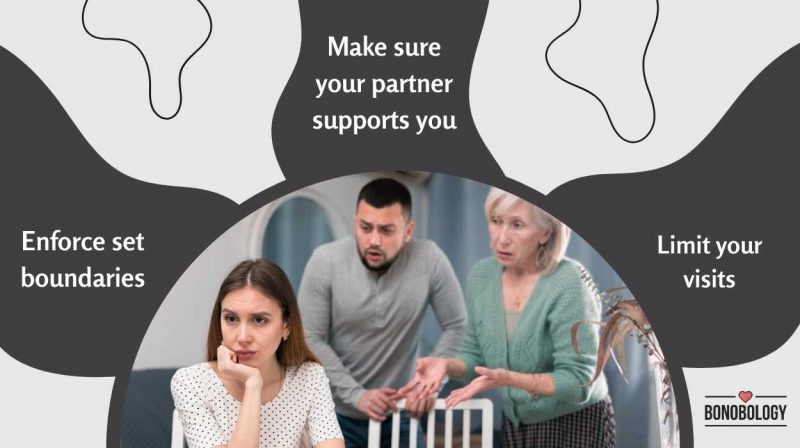


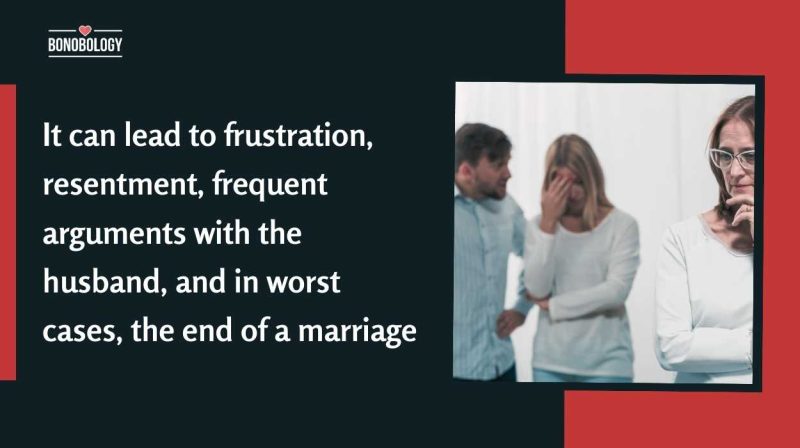
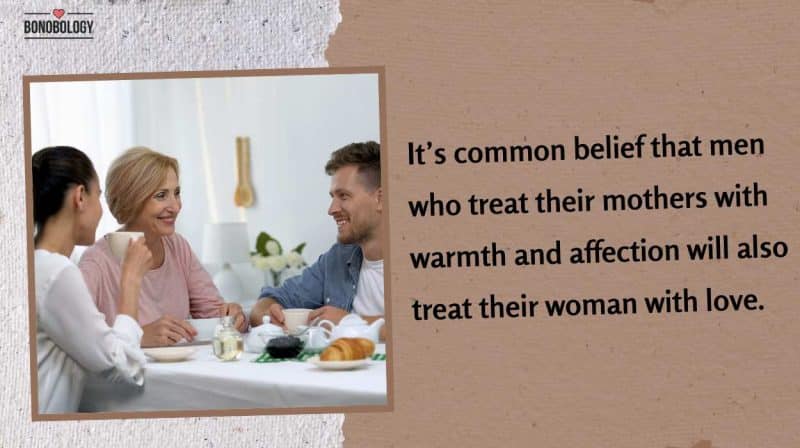
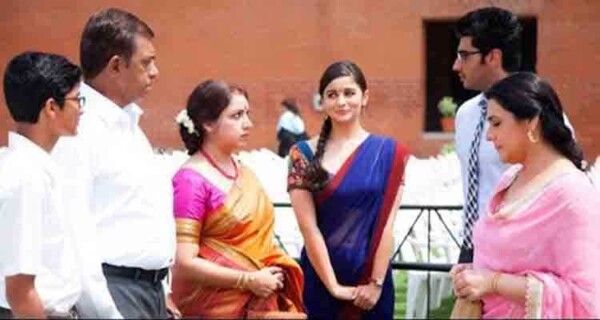

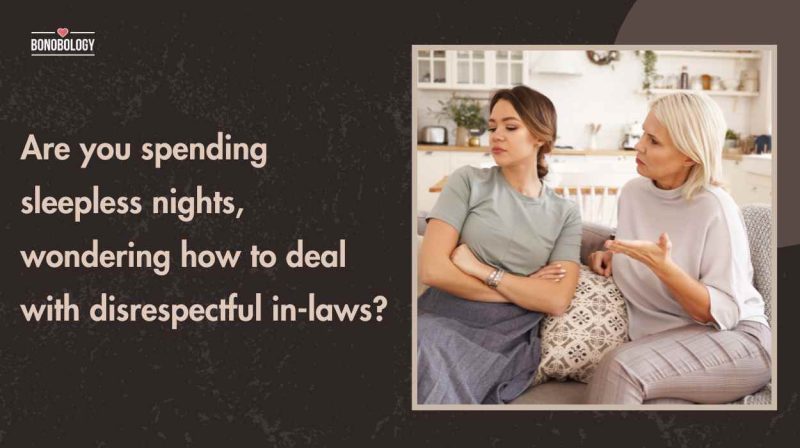


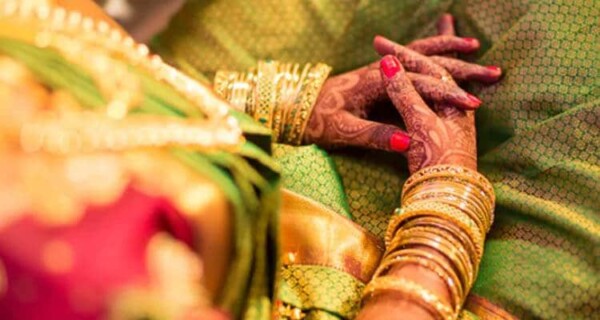






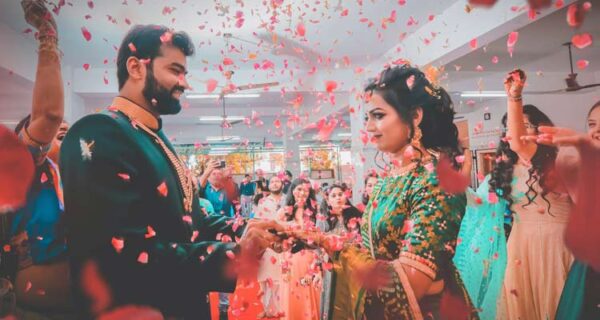
Featured
Setting Boundaries With In-laws – 8 No-Fail Tips
The 7 Ways Mothers-In-Law Ruin Marriages – With Tips On How To Save Yours
10 Actionable Tips For Distancing Yourself From In-Laws
12 Things To Do When Your Husband Chooses His Family Over You
10 Signs You Have A Toxic Daughter-In-Law And How To Deal With Her
15 Signs Your Mother-In-Law Hates You
How To Talk To Your Husband When The Other Woman Is His Mother
How To Impress Your In-laws In The First Meeting
10 Thoughts That Come To Your Mind When Your Mother-In-Law Visits You
10 Ways To Deal With Disrespectful In-laws
15 Clever Ways To Deal With A Manipulative, Scheming Mother-In-Law
How I Won Over My Boyfriend’s Mom
Please Don’t Call Her Selfish If She Doesn’t Want To Live With Her In-Laws
My Wife Was Abducted By Her Family Because I Was 15 Days Younger Than Her
How Destructive Are Indian In-Laws?
7 Tips For Men Who Are Stuck Between Wife And Mother In A Joint Family
My Marriage Was In Trouble Because Of My Sister-In-Law’s Stories
8 Signs of a Poisonous Mother-In-Law and 6 Ways to Beat Her at Her Game
Relationship with In-Laws: I was Scared of My Father-In-Law because…
5 reasons why the Indian family is killing the Indian marriage